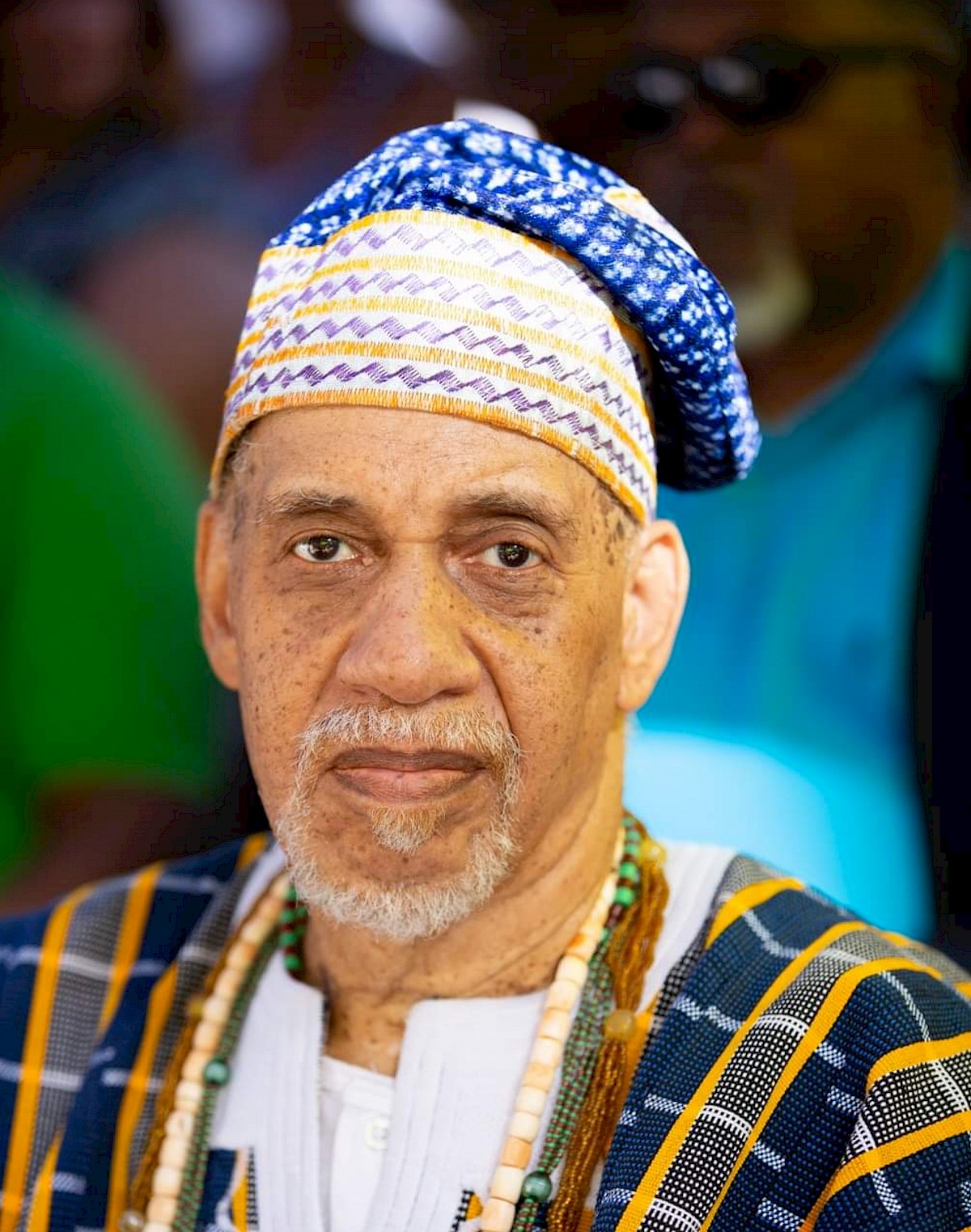Chief Baba Neil Clarke

Chief Baba Neil Clarke is a highly respected, award-winning and internationally noted, culturally grounded percussionist-bandleader, producer, scholar, spiritualist and educator. His involvement in African-centered percussive arts and his prolific professional music career span sixty years. Born, raised and trained in Brooklyn NY, Clarke has studied with percussion masters throughout the African diaspora. He’s enjoyed long term collaborations with many “A-list” culturally and politically rooted artists throughout his career. This instilled in Chief Clarke a desire for his artistry to have holistic socio/political impact as well as artistic merit. Rooted in traditional spiritual practices, as a creative artist his overarching work tends to be centered around exploring possibilities. He seeks to create opportunities for cultivating an understanding and appreciation of global African heritage through the embedded aesthetics of THE DRUM as a musical instrument on its own merit. He approaches exploring varied applications, incorporations and inclusions in as many artistic and creative contexts as possible purposefully intent on dispelling stifling stereotypical misconceptions and unproductive biases. Chief Clarke’s relationship with BAC goes back to his teenage years being encouraged in his artistry by founder Charlene Victor. He continues to pursue this adventure of the creative communicative process in his ongoing artistic explorations.
The Pinkster Festival is a very important 350-year-old, but little known, Africanized celebration which took place annually in the Hudson River Valley region, including the N.Y.C. area, for almost 200 yrs. “Pinkster” is Dutch for the Christian holiday of Pentecost, the commemoration of the descent of the Holy Spirit upon the disciples of Jesus, prompting them to “speak-in-tongues” or different languages and go forth spreading their joyous message. It’s considered to be the beginning of the formal Christian church. According to the Christian calendar Pentecost/Pinkster occurs annually 50 days after Easter. These observations began here with the original Dutch settlers who did engage in the enslavement of African people from 1626. The Pinkster festival was a time when the Dutch would go to church to observe the Pinkster holiday. They would give their enslaved Africans time off with the freedom to engage in normally uncustomary activities. The Africans took this opportunity to celebrate with their own music, dance and other cultural expressions of their African heritage. The Pinkster Festival evolved into what is probably the oldest openly African holiday celebration in America. It was very popular for nearly 200 years. These celebrations were outlawed in 1811 finally disappearing around 1850.
Photo by Solwazi Afi Olusola, 2019